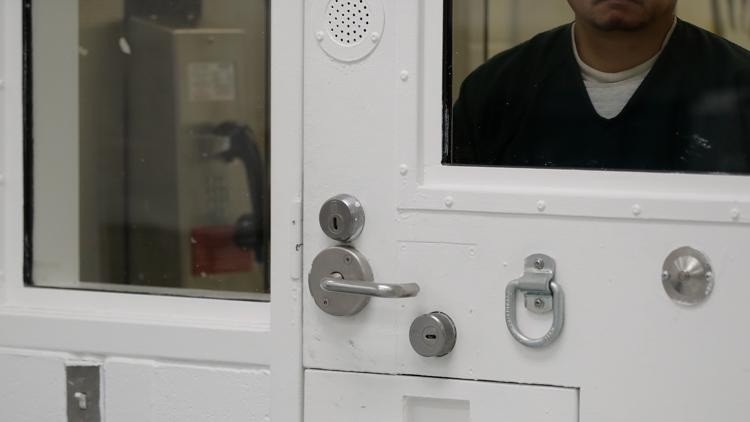WASHINGTON — U.S. Immigration and Customs Enforcement is considering downsizing its detention capacity and releasing thousands of migrants from custody due to a budget shortfall that Congress has so far refused to address, a senior agency official told CBS News Wednesday.
Without sufficient funding, officials could be forced to release between 4,000 and 6,000 migrants from long-term immigration detention centers, according to the official, who requested anonymity to discuss internal cost-saving plans.
ICE oversees a network of county jails and for-profit prisons across the U.S. to detain migrants it is seeking to deport, such as those who cross the southern border illegally or immigrants transferred to the agency after being charged or convicted of crimes. As of the end of January, ICE was detaining more than 38,000 immigrants, most of them recent border-crossers, agency data show.
As part of a massive emergency funding request, the Biden administration late last year asked Congress for billions of dollars to fund ICE operations, including deportations, arrests, detention beds and migrant tracking technology. But Republicans in Congress blocked those funds and an accompanying bipartisan border policy agreement forged by the White House and a small group of senators, saying the deal — which included drastic limits on asylum — was not strict enough.
"Tough decisions"
During a press conference earlier this month, interim ICE head Patrick Lechleitner said the agency would "have to make some tough decisions going forward if we don't get more supplemental funding."
The potential release of thousands of migrants, first reported by The Washington Post, is not a certainty. The Department of Homeland Security, which oversees ICE, could still divert money from other sub-agencies, such as the U.S. Coast Guard, to make up for the budget deficit.
In a statement to CBS News, Erin Heeter, a DHS spokesperson, warned that a "reduction in ICE operations would significantly harm border security, national security, and public safety."
If there's not enough funding, Heeter said DHS would "reprogram or pull resources from other efforts" to fund ICE, U.S. Customs and Border Protection and U.S. Citizenship and Immigration Services, agencies that also asked for billions of dollars in additional funds.
"The Administration has repeatedly requested additional resources for DHS's vital missions on the southwest border and Congress has chronically underfunded them," Heeter said. "Most recently, Congress rejected the bipartisan national security bill out of hand, which will put at risk DHS's current removal operations, put further strain on our already overtaxed workforce, and make it harder to catch fentanyl at ports of entry."
The budget shortfall also threatens to undermine ICE's efforts to deport migrants who do not ask for asylum or who are found ineligible for U.S. refuge — a pillar of the Biden administration strategy to reduce the record levels of unlawful border crossings reported over the past years.
While illegal crossings along the southern border plunged by 50% in January after reaching a record quarter of a million in December, migrant arrivals have climbed in February and are expected to increase further in the spring, when migration historically rebounds.
Other parts of the sprawling U.S. immigration system would be also affected by the lack of new funding, DHS officials said. They include border surveillance technology and the processing of legal immigration benefits, such as green cards and asylum cases.
A Federal Emergency Management Agency program that provides money to cities and organizations that house and feed migrants released from DHS custody also ran out of funds last year. Many Republicans objected to the bipartisan border deal's inclusion of more money for this program, saying it rewards entities they believe are encouraging illegal immigration.
Nicole Sganga contributed reporting.



